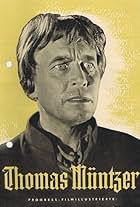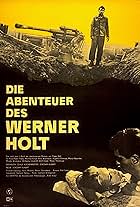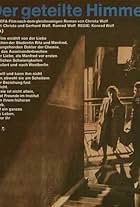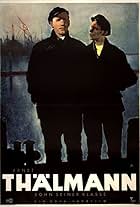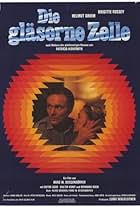Advanced search
- TITLES
- NAMES
- COLLABORATIONS
Search filters
Enter full date
to
or just enter yyyy, or yyyy-mm below
to
to
to
Exclude
Only includes titles with the selected topics
to
Credited as...
In minutes
to
1-50 of 144
- The cases of the Munich police's major-crimes unit.
- Young Pharaoh Ramses XIII clashes with Egypt's clergy over influence on the affairs of the state and its coffers.
- Anneliese is living together with her son Florian in a run-down farm. But her exaggerated demands drive him mad. Man and daughter work in the city. The 14-year-old son is supposed to fulfill the mother's dreams and become a chemist. Still, the boy fits his wishes, but he secretly dreams of becoming a farmer. Then, the situation escalates.
- This tragic drama is adapted from a popular Ibsen play about the relationship between a mother, her ego-maniacal husband, and their daughter. The father never approves of anything the daughter does.
- As a painter in the court of King Carlos IV, Goya - played by the great Lithuanian actor Donatas Banionis (The Red Tent, Solaris) - has attained wealth and reputation. He believes in King and Church, yet he is also a Spaniard who dearly loves his people. This contradiction presents him with a dilemma. Based on Lion Feuchtwanger's novel, Goya is one of ten East German films originally shot in 70mm. This release is the director's cut and shows the influence of great filmmakers from Buñuel and Saura, to Eisenstein. Goya was nominated for the Golden Prize at the 1971 Moscow International Film Festival.
- Two teenagers are drafted into Hitler's army. One becomes fanatical, while the other realizes war's senselessness. When his friend is executed, the disillusioned soldier turns against his own forces in this anti-war film based on a novel.
- In 1961, Rita returns to her childhood village after a breakdown. As she recovers, she remembers the past two years: her love for chemist Manfred, 10 years her senior; his enthusiasm about his new chemical process, which turned to bitter disappointment in the face of rejection; his escape to West Berlin a few weeks before the Wall was built; and his hope that she would follow him. This East German classic, praised by critics as one of Germany's 100 Most Important Films, is based on Christa Wolf's internationally-known novel, criticized in the GDR for questioning the construction of the Wall. Produced during a brief cultural thaw in the early 1960s, this film was strongly influenced by French Nouvelle Vague cinema.
- A lovely, humorous live-action rendition of the classic children's story by Carlo Collodi about the adventures of a wooden boy carved from a magical piece of wood by a puppetmaker.
- This historical-biographical film begins in the first days of November 1918 on the western front. News comes to the soldiers of a revolutionary uprising in Kiel. Young Thälmann, a soldier against his will, would like to join the expanding conflict on the side of his comrades in Hamburg. As the revolution becomes threatened by the betrayal of the right-wing Social Democrats and the splintering of the working class, he nevertheless tries unremittingly to unite the workers. The reactionaries grow ever stronger and the neediness of ordinary people multiplies. In this dire situation, the Hamburg police commissioner would like to block the unloading of a ship full of provisions that were sent from Petrograd as a message of solidarity. But Thälmann prevails in unloading it. The high point and conclusion of the first part of the Thälmann films is established at the Hamburg Uprising in October 1923.
- A man is wrongfully imprisoned for five years. Once out, he hears about his wife's supposed adventures outside of their marriage and becomes increasingly jealous.
- The series describes the time of the First World War in 8 episodes based on the novel by Bernard von Brentano from the perspective of the family of a Hessian Reichstag member, an independent man of the Catholic-conservative Centre Party.
- Somehow and anyway.
- About the business man Kurt Andreas Becher, who is taking the liberty to change a few details of his life history. In 1944, SS-Obersturmbannführer Becher arrives in Budapest in order to obtain material for the Waffen-SS. At the same time, he starts to gather private property by offering an insidious choice to the corporation's Jewish majority shareholder, Dr. Chorin: Either Chorin assigns the company to Becher "of his own free will" - thereby obtaining the permission to travel abroad - or he his family will end up in an extermination camp.
- Drama series focusing on the Bavarian Grandauer family and the historic events between 1897 and 1954. At the end of the 19th century, police officer Ludwig Grandauer marries the mother of his illegitimate son, Agnes. After some years, they move to Munich with their three children Karl, Luise, and Adolf, where Ludwig works at the police headquarters called "Löwengrube". During the next decade, the children have to learn to care for themselves because Agnes and Ludwig both die. When Karl returns from World War I, everything has changed. Luise is married to Max Kreitmeier who owns a bakery, while Adolf joins a new nationalist party called NSDAP. Karl himself is more moderate and works for the police like his father. In the 1920s, he gets to know Traudl Soleder, daughter of a bourgeois family whose brother Kurt fights against the up and coming Nazi movement. After their wedding, Traudl's bugging mother also moves in. When Hitler comes into power in 1933, Karl remains a police officer, but doesn't join the party, while Adolf makes a career in the law. Meanwhile, Kurt's situation worsens because he is married to Sara, a Jewess from Berlin. During World II, the Grandauers' sons Rudi and Max become soldiers and their parents lose their flat during an air raid. They barely survive, while Adolf loses his wife and children except one son. In the post-war era, Kurt and Sara, as victims of the Nazi system, have many benefits, but also have to live with the same people who harassed them before. They drift apart more and more, but after Kurt is nearly killed in a car accident, they move to Berlin together. Karl and Traudl mourn for their allegedly killed son Rudi who suddenly returns and wants to catch up on his youth. Meanwhile, his brother marries the daughter of a former Nazi. The story ends on New Year's Eve 1954: the whole family is reunited, but something seems to be wrong with Traudl's old mother.
- History of a Jewish family, the Oppermanns, in Berlin at the end of 1932, after Hitler has become the leader of Germany's strongest political party.
- Tale of the capricious princess. Adapting the Tales of the Brothers Grimm "King Thrushbeard".
- In August 1914, amidst the public ecstasy surrounding the impending war, Hans Gastl, the seventeen year-old son of a Munich bürger, makes a decision: he will not take part in this war. This resolution signifies a turning point in his life; a farewell to his class and his family. His notions of "transformation" are still nebulous, but are nevertheless linked with a sensible life in a just society. The resolution does not come spontaneously: since he was a child, Gastl, the son of a senior public prosecutor, has rebelled against the decadence and mere appearance of morality in his parent's household. In relating to his schoolmates Feck and Freyschlag, he was constantly torn between admiring their courage and abhorring their evil pranks. He thinks about his friendship with Löwenstein, who is a Jew, and Hartinger, the boy from the working class, and about his tragically ending love for the prostitute Fanny.
- Bellboy Ed Martin witness a murder in the hotel where he works. The perpetrator could be caught, but he had previously taken papers from the victim's bag that prove a criminal interweaving of politicians and gangsters. The silence of the killer is bought with its release. However, since the case has whirled too much dust, a new perpetrator is needed: Ed Martin, who has observed everything. Severly beaten by the police he confesses to the crime. Later he is found dead in his cell.
- Rudi Prange is released from prison for good behavior. He gets a job in a transport unit but gets involuntarily involved in a smuggling business by a colleague. When two police officers are gun down Rudi becomes the main suspect.





